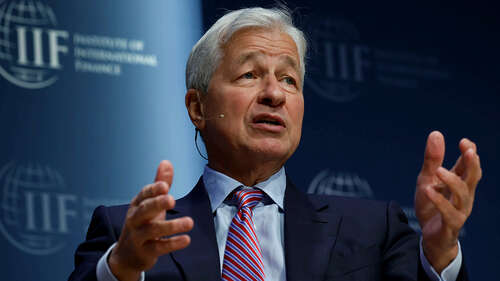
‘Making Money’ host Charles Payne says this week’s bank earnings will give a glimpse into the stability of the U.S. economy on ‘The Big Money Show.’
JPMorgan Chase reported its best-ever annual profit and forecast higher-than-expected interest income for 2024 even as quarterly profit fell due to a $3 billion charge the bank took to replenish a government deposit insurance fund.
The largest U.S. lender has benefited from its acquisition of failed First Republic Bank in May that brought in billions of dollars of loans and bolstered its net interest income (NII) – the difference between what banks make on loans and pay out on deposits.
The bank said it expects full-year net interest income (NII) of $90 billion. That was higher than estimates of $86.2 billion, according to LSEG data. In the quarter, NII rose 19% to a record of $24.2 billion.
CEO Jamie Dimon said the U.S. economy continued to be resilient and markets were expecting a soft landing, but sounded a note of caution on inflation and interest rates.
“There is also an ongoing need for increased spending due to the green economy, the restructuring of global supply chains, higher military spending and rising healthcare costs. This may lead inflation to be stickier and rates to be higher than markets expect,” Dimon said.
Profit for the fourth quarter was $9.31 billion, or $3.04 per share, for the three months ended Dec. 31, the bank said on Friday. That compares with $11.01 billion, or $3.57 per share, a year earlier. Annual earnings hit a record $49.6 billion.
The bank reported a 12% jump in revenue to $38.57 billion.
JPMorgan and several major banks are taking a hit to their quarterly profits as they are required to pay a bulk of the $16 billion to replenish the Federal Deposit Insurance Corporation’s deposit insurance fund (DIF), which was drained after Silicon Valley Bank and Signature Bank failed last year.



